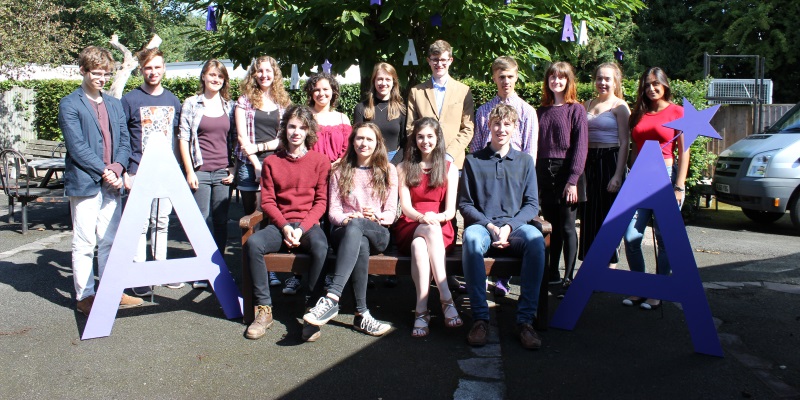
When choosing a new school for your child, whether it’s their first primary school, you’ve just moved into the area or you want to change schools, you will first want to contact your
local council to find all the school options available to your child in your catchment area.
Then you will need to look at the admission criteria for the schools you’re interested in. If there are special circumstances you can sometimes apply for places in schools in other areas but a good place to start is looking is on their excellent website at www.gov.uk.
It’s a good idea to look at each school’s inspection and performance reports. To teach and accommodate pupils, all UK schools must meet strict quality standards set by the UK government and other education bodies. These standards cover the quality of teaching, accommodation, pupil welfare, facilities and more.
To check that schools are meeting these standards, they are inspected at least every three years for boarding, and every six for teaching quality. Between scheduled visits, inspection bodies will respond to complaints if necessary.
After the inspection, the school receives a report which shows how they performed. You can see the reports on the schools’ websites, or by contacting Ofsted at
www.gov.uk.
Once you’ve narrowed down your favourite schools, it’s a good idea to set up a visit or find out when their next Open Day is. This will give you a chance to see the facilities and meet some of the staff and pupils.

For independent schools, you will need to apply directly to the school. There are around 2,500 independent schools in the UK, which educate around 615,000 children, some 7 per cent of all British children and 18 per cent of pupils over the age of 16. Look on the school’s website or contact them to ask about the application process. Here in the Midlands we have some exceptional Independent boarding and day schools.
For state schools, applications are usually handled by the local government so your local council will be able to help with all applications. However, do remember demand for places varies and for the most popular schools, (especially in the independent sector) you may have to apply up to three years in advance. For many, you should apply a year in advance if possible, but if you have left it later than that it is still worth enquiring. Just email or phone the admissions offices at the schools you are interested in.
It is best to start in September (the start of the academic year in the UK), so that you begin at the same time as other students and it will be easier to settle in. However, don’t worry if you can’t apply that far in advance or start in September – some schools are very flexible.
Most UK state schools, and some independent schools, do not have entry requirements linked to academic performance. Places are allocated based on factors such as proximity, meaning the student must live within a certain distance of the school.
However, some independent schools and a minority of state schools do set academic entry requirements. Each school sets its own requirements.
For some schools, pupils and their parents may need to take part in an interview. Interviews are not meant to be scary – they are usually very friendly. They are a chance for you to ask questions, and for the school staff to find out what you are looking for.
Many schools hold entrance exams. Some schools hold exams as a way to select the most academically gifted pupils. Others do not select pupils based on the exam results, but use them as a way to identify what academic support you will need.
Don’t be concerned about the exams. There are many different schools, catering for all abilities and talents.
Regarding English language skills, schools welcome pupils with a range of abilities, but some may recommend that you do a language course before you begin or when you have enrolled, to ensure your child will understand his/her classes.
For sixth form entry (to study for A levels, International Baccalaureate or equivalent), most schools set target grades for your exams taken at secondary school level (such as GCSEs or IGCSEs), particularly for the subjects you want to continue studying.
A boarding school is a residential school where pupils live and study during the school year. There are approximately 500 boarding schools across England, Wales, Scotland and Northern Ireland.

Another set of impressive A level results are a fitting tribute to the end of Dr Jonathan Godfrey’s 20 years as Principal of Hereford Sixth Form College.
Over 56% of A Level entries resulted in an A*, A or B grade, significantly above the national average and one of the highest for a sixth form college in the country.
The overall pass rate was 99%.
73 students gained three grade As or better with 19 achieving four grade As at A Level. Three students gained a remarkable five grade As at A Level.
Many first year students sat AS examinations also gaining superb results with 52.4% of entries resulting in A or B grades, over 9% above the national average.
The pass rate of 94.8% was almost 5% above the national average.
Jonathan Godfrey, said, “I am delighted the hard work of staff and students has been rewarded with these outstanding results with the College maintaining its position as one of the top sixth form providers in the country. As the first Times Educational Supplement Sixth Form College of the Year the College has a national reputation to maintain and I am very pleased it has done so.
Students continue to achieve grades which compare well with those in top independent schools or selective sixth forms in local schools. Our top 100 candidates achieved an amazing 97.2 % A*/A/B grades, 83.5 % A*/A grades and 37.9 % A* per A Level entry.
On average, students of all abilities gained significantly better grades than they would be expected to achieve on the basis of prior performance at GCSE and the College is extremely proud of their achievement.”


 Crescents Ballet School has been established for over 25 years, we offer training for dancers who wish to take examinations or for those who just dance for the love of it.
Crescents Ballet School has been established for over 25 years, we offer training for dancers who wish to take examinations or for those who just dance for the love of it.
All students have opportunities to perform on stage and experience the thrill of the limelight and audience applause.
We nurture each child’s individual talents and offer opportunities to create a lifetime of memories. Come along to our studios and join our amazing team and see how we create the Dancing Stars of the future.